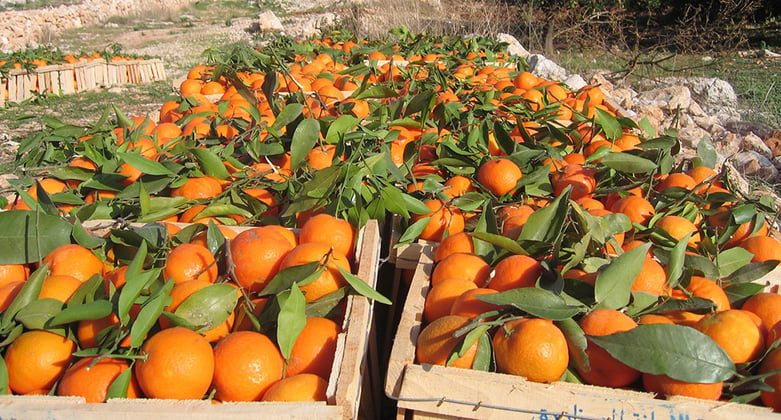It’s summertime, and that means lots of sun exposure, but folks who enjoy a glass of orange juice or grapefruit for breakfast should take note that a new study claims certain types of citrus fruit can cause a slight increase in the risk for melanoma, the deadliest form of skin cancer.
The UMHS Endeavour looks at a study on melanoma, based on a news article on MedlinePlus to help educate the public and inform students at American and Caribbean medical schools about advice to give future patients at risk for melanoma.
Citrus Fruits & Skin Cancer
A report in the online edition of the June 29, 2015 of the Journal of Clinical Oncology said more than 100,000 American adults were studied for 25 years regarding orange juice and grapefruit.
“Researchers discovered that those who regularly consumed orange juice or whole grapefruit had a higher risk of developing melanoma, compared to people who avoided those foods,” Medline Plus wrote.
The findings do not mean that certain types of citrus cause cancer, people involved in the study pointed out.
Dr. Abrar Qureshi, chair of dermatology at Brown University and a dermatologist at Rhode Island Hospital in Providence, said some citrus fruits have “photoactive” chemicals (psoralens and furocoumarins). These chemicals can make the skin more sun-sensitive when applied topically.
"You'll see children get a sunburn in spots where a citrus popsicle dripped down the chin, for example," Dr. Qureshi said.
This doesn’t mean people prone to sunburn should avoid citrus fruits.
"The citrus can't hurt you without the excessive sun exposure," Dr. Qureshi said.
People are advised to stay in the shade, use sunblock and wear a hat when outdoors.
Dr. Marianne Berwick, a skin cancer researcher, wrote an editorial published with the study.
"I don't think the general public should make any changes based on this study," Dr. Berwick, a professor of dermatology at the University of New Mexico in Albuquerque, is quoted as saying in Medline Plus. "You should still have a wide variety of fruits and vegetables in your diet."
Details of the Study
Following are details of the study on citrus fruit and melanoma risk (as reported by Medline Plus).
- Researchers analyzed data from two long-running studies of U.S. health professionals.
- Every two years, participants answered detailed surveys on their health and lifestyle.
- Over a period of 25 years, “more than 1,800 people developed melanoma and the risk was higher among those who regularly drank orange juice or ate whole grapefruit,” Medline Plus said.
- Over about 25 years, more than 1,800 people developed melanoma and the risk was higher among those who regularly drank orange juice or ate whole grapefruit. That was true, the researchers found, even when several other factors were taken into account -- including people's reports of their overall sun exposure and history of bad sunburns.
- Participants who drank orange juice at least once a day “were about 25 percent more likely to develop melanoma than those who drank the juice less than weekly”
People who ate whole grapefruit “at least three times a week had a 41 percent higher melanoma risk, versus those who never ate it,” Medline Plus said
There was no connection between melanoma risk and “either whole oranges or grapefruit juice.”
Both Dr. Berwick and Dr. Gary Schwartz, spokesman for the American Society of Clinical Oncology (ASCO), said there is no current cause for alarm. Dr. Berwick is quoted as saying in Medline Plus that “the findings need to be replicated in other study groups, to make sure the citrus-melanoma link is real.”
"While the findings are intriguing, it's far too soon to recommend any broad changes to grapefruit or orange consumption," Dr. Schwartz said in a statement from ASCO. "Until conclusive data are available, we should continue to be cautious about protecting our skin from sun exposure."
Dr. Qureshi noted that, because of the different types of “photoactive compounds in different parts of the fruit,” not all citrus fruits are alike regarding melanoma risk.
Dr. Qureshi said the findings “need to be confirmed in other studies.”
"We certainly wouldn't want people to avoid fruits that are generally good for their health," Dr. Qureshi said. "Just be aware that there's an association with melanoma, and perhaps be extra careful about sun protection on days you're eating citrus fruits."
(Top photo) CAN ORANGES & ORANGE JUICE INCREASE MELANOMA RISK? Not exactly, but new clinical oncology study says certain citrus fruits can increase risk of melanoma, the deadliest type of skin cancer. Photo: Jak/Wikimedia Commons
About UMHS:
Built in the tradition of the best US universities, the University of Medicine and Health Sciencesfocuses on individual student attention, maintaining small class sizes and recruiting high-quality faculty. We call this unique approach, “personalized medical education,” and it’s what has led to our unprecedented 96% student retention rate, and outstanding residency placements across the US and Canada. UMHS is challenging everything you thought you knew about Caribbean medical schools.

Scott is Director of Digital Content & Alumni Communications Liaison at UMHS and editor of the UMHS Endeavour blog. When he's not writing about UMHS students, faculty, events, public health, alumni and UMHS research, he writes and edits Broadway theater reviews for a website he publishes in New York City, StageZine.com.















